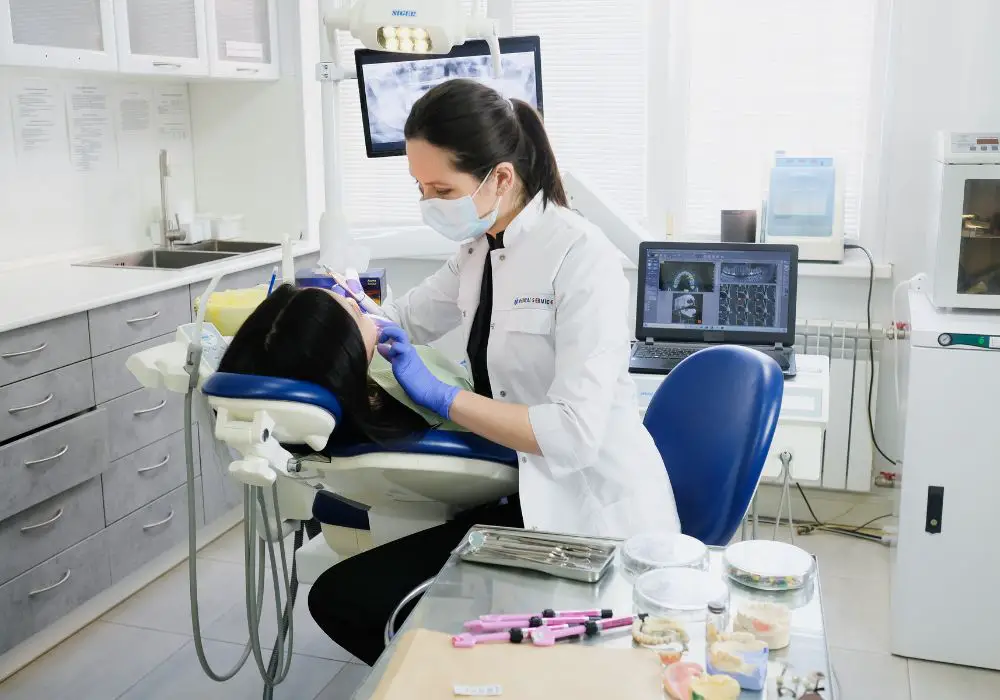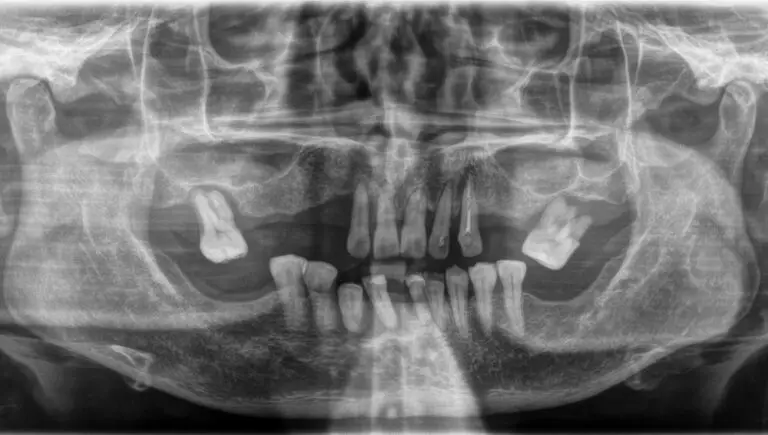As a dental practice owner, your top priority is providing exceptional care to your patients. However, the dental economics of your practice is equally important. It enables you to uphold high dental service standards and incorporate cutting-edge technologies.
Maximizing revenue for your practice, especially if it’s an average dental practice, involves more than just increasing your dental billing; it’s about securing equitable reimbursements for your services through effective rate negotiations. With a few innovative strategies, you can unlock significant annual revenue potential and ensure the prosperity of your practice.
This article dives into practical strategies for navigating the complex world of maximizing practice revenues through smarter rate negotiations. Read on!
Understand The Negotiation Landscape

Negotiating dental fees requires a careful balance. It’s about ensuring you’re fairly compensated for your expertise and services while still being competitive and focusing on patient care. Several players shape the landscape of these negotiations:
Insurance companies
Preferred Provider Organizations (PPOs) set specific fee schedules for covered services. It’s crucial to understand these rates and know how to negotiate within the network to your advantage.
Patients with dental insurance
Patients with dental insurance may have specific expectations regarding out-of-pocket costs. Providing clear, transparent explanations and highlighting your dental practice valuation of your services can help make them more responsive about these costs.
Self-pay patients
Patients without dental insurance need a clear fee structure upfront before they sign up for your dental services. Consider offering competitive prices and flexible payment options to attract and retain self-pay patients.
Generally, successful fee negotiations balance your expertise’s worth with patients’ budgets and needs. Consider partnering with negotiation experts like NGA Healthcare to access a turnkey solution for negotiating that can get your practice a meaningful profit margin. Organizations specializing in healthcare fee negotiations understand the complex landscape of insurance reimbursements, patient expectations, and market trends.
Build A Strong Foundation For Negotiation
Before you start negotiations, it’s essential to establish your current position in the dental industry. Here are several steps to take:
Know your costs
Start by calculating the overhead costs involved in running your dental office. This includes salaries, equipment maintenance, and the cost of dental supplies. Understanding these expenses will help you set the minimum acceptable fee for each service.
Consider benchmarking
Research the dental billing that other dental practices in your area apply for similar dental services. Use resources from the American Dental Association and online tools to get reliable and current data. This information will help you understand where your fees stand in comparison to those of your competitors.
Bring in coding expertise
Ensure your staff is proficient in dental coding to translate procedures into billable codes accurately. Up-to-date coding practices prevent under-billing and maximize insurance reimbursements.
Covering these bases constructs a solid negotiation foundation. They help you boost your chances of favorable fee negotiations.
Prepare For Negotiations

Careful preparation is essential for effective fee negotiations. Craft a detailed proposal that outlines your requested rates, supported by data on your patient’s performance and market benchmark. Be ready to justify these rates by highlighting the high-quality and cost-efficient dental care you deliver.
For instance, if you’re proposing high billing for crowns, emphasize your use of advanced technology that enables precise milling and results in natural-looking crowns. Show how investment in premium materials improves treatment outcomes and justifies higher reimbursement.
Additionally, practice how to present your case confidently. Prepare for potential pushback, such as questions about why your rates are higher than those of competitors. Have clear, concise responses ready that emphasize your practice’s unique value proposition.
Leverage Technology For Streamlined Negotiations
Leveraging technology is crucial for enhancing the profit margins of your dental clinic. Adopting advanced practice management software can streamline your operations, cut down on administrative expenses, and provide comprehensive analytics on your financial performance.
While negotiating reimbursements, it’s equally essential to adopt robust billing practices for seamless operations. Advanced EHR solutions not only streamline patient records but also help manage your agency’s billing efficiently. This ensures that you maximize revenue through accurate and timely claims submissions, minimizing reimbursement delays.
For example, these systems can generate a detailed dental practice report that breaks down average annual revenue by treatment type, insurance billing provider, or patient demographics. Such detailed insights display high-value services and key payer sources. This can be instrumental in guiding strategic fee negotiations. If, for example, you discover that your
pediatric services are particularly profitable, this could be a basis to negotiate higher reimbursements from insurers that cover this demographic.
Moreover, the software automates routine tasks such as claims submissions, minimizing coding errors that often result in underpayments. It also maintains thorough dental practice report trails. This helps in defending your dental billing practices during audits and strengthens your position when it’s time to renegotiate rates.
Build Long-Term Relationships
While negotiating an optimal rate is crucial for maximizing dental practice profit, fostering long-term relationships with patients and insurance companies is critical for sustained success. You can do this through:
Patient rapport
Make open communication a priority throughout the patient’s journey. Address concerns proactively and explain fee structures transparently to build trust and rapport. This approach satisfies new patients and encourages them to return and refer others.
Value-added offerings
Go beyond basic dental services. Enhance the patient experience by hosting educational seminars, launching loyalty programs, or offering convenient online scheduling. These initiatives increase patient satisfaction, engagement, and loyalty. This makes your practice stand out in the dental care community.
For example, implementing a patient engagement app that includes appointment reminders and educational videos can significantly enhance patient interactions, positioning your practice as a trusted partner in oral health.
Insurer partnerships
Develop collaborative relationships with insurance providers. Regularly share updates on your practice’s performance and discuss how your practice can contribute to their goals. This collaborative approach can lead to more favorable terms and conditions over time. For instance, consider hosting annual meetings with key insurers to review your quality metrics and cost-effectiveness. This demonstrates your proactive commitment to align with their objectives.
Ultimately, relationships with patients and payers shouldn’t be merely transactional—they’re built on a foundation of consistent communication, improved patient experience, and mutually beneficial cooperation. This strategic approach fosters patient loyalty and ensures long-term profit margin.
Train Your Team

Investing in thorough training for your front office team is essential. It arms your team members with the knowledge to navigate insurance intricacies and rate discussions, which can boost your practice’s income. As the first point of contact for patients and insurers, the team’s competence and confidence in these interactions shape your practice’s reputation and financial performance.
For instance, ensure your team members understand terms like deductibles, copays, and coverage exclusions. Role-playing realistic patient scenarios builds confidence in clearly explaining policies and reducing frustration—cross-train insurance verification protocols to quote accurate out-of-pocket estimates.
Also, develop a framework for resolving dental billing disputes. Your staff should be proficient in the documentation requirements to submit detailed claims. This helps prevent payment delays or denials.
Review Contracts Regularly
Treating insurance contracts as static dental practice reports is a significant oversight that can impact the profitability of your dental office. You should manage and revise these agreements to stay in step with your practice’s changing operational needs.
The dental industry is constantly changing—new competitors enter the field, healthcare policies evolve, and patient demographics shift. In parallel, your dental practice continues to upgrade its services and invest in the latest technologies.
For instance, if your practice adds advanced cosmetic procedures like veneers or teeth whitening, revisiting your contracts can help you secure the best possible fees for these profitable services. Similarly, if there are changes to insurance billing schedules for primary preventive dentistry, renegotiation can help you align with these market changes.
Conclusion
Maximizing the revenue of your dental practice through smarter rate negotiations involves a mix of careful strategic preparation, building solid relationships, and communicating effectively. By embracing these best practices, dental owners can secure better reimbursement rates that reflect the value of their services. This, in turn, boosts the profitability and long-term viability of their practice. Remember, every negotiation is an opportunity to increase your profit margins and reinforce the reputation and quality of your dental clinic in the competitive healthcare industry.







